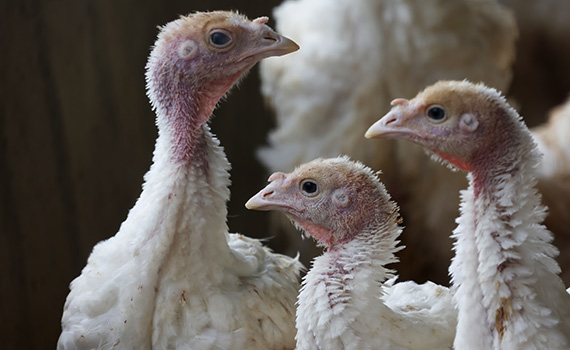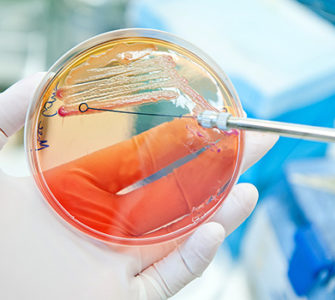Four-year study highlights value of vaccinating turkeys against E.coli
Vaccinating turkeys against colibacillosis with the modified-live vaccine Poulvac® E. coli has economic and animal welfare benefits, according to a retrospective, 4-year study conducted on 37 French turkey farms.1
Colibacillosis, caused by the bacterium Escherichia coli, is considered an emerging problem in turkeys, the researchers noted. Characterized by pericarditis, perihepatitis and airsacculitis, it can be highly lethal if left untreated and causes significant economic losses — taking a toll on the industry.
Until recently, they added, antibiotics were used to treat the disease, but concerns about antibiotic resistance have driven a shift toward vaccination strategies.
Different outbreaks put vaccine to test
Building on a substantial body of research demonstrating the benefits of Poulvac E. coli in broilers and layers, the investigators sought to evaluate the vaccine’s impact on mortality and economically important production parameters in turkeys.
The study evaluated retrospective data from farms that are part of a large cooperative representing 10% of French turkey production. The selected farms shared the same vaccination protocols, and overall, 393 batches of data were analyzed, with two clear categories setting the parameters of the study: farms with either recurrent or sporadic outbreaks of colibacillosis.
Turkeys were vaccinated at 1 and 3 weeks of age on farms with recurrent colibacillosis due to the 078 E. coli strain, and on farms with sporadic outbreaks due to a mix of E. coli serotypes. The strain 078 is associated with high pathogenicity and is the serotype contained in Poulvac E. coli.
On farms that had sporadic outbreaks of colibacillosis, vaccination was associated with significant decreases in mortality and in the average condemnation rate at processing (p < 0.05). Significant improvements (p < 0.05) in feed conversion ratio, weight per processed turkey in each batch, and economic margin per batch were also observed.
On farms with recurrent outbreaks due to the 078 strain, similarly significant results were seen for feed conversion, weights and economic margin, while vaccination resulted in a numeric decrease in mortality and condemnation rates.
Vaccine efficacy, economic performance
“The study provides considerable evidence of the effectiveness of vaccination in colibacillosis control and its positive impact on welfare and economics, both in farms with sporadic and recurrent infection,” explained Nathalie Galliard, DVM, Zoetis, the lead author of the study, which was published in Avian Diseases.
“Even on farms with sporadic infection, mortality decreased by nearly a whole percentage point. That coupled with a reduction in condemnations and a 4- to 7-point improvement in feed conversion represents a large potential savings for producers. Farms can expect a positive return on investment, whether infections are recurrent or not.”
To view the full article in Avian Diseases, click here.
1 Chrétien L, Boutant J, Lyazrhi F, Galliard N. Retrospective assessment of Escherichia coli vaccination in broiler turkeys under field conditions in 37 farms from Brittany (France). Avian Dis. 2021;65(4):1-4.
MM-18226
Posted on February 15, 2022

















